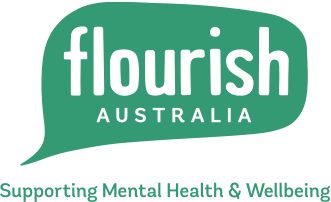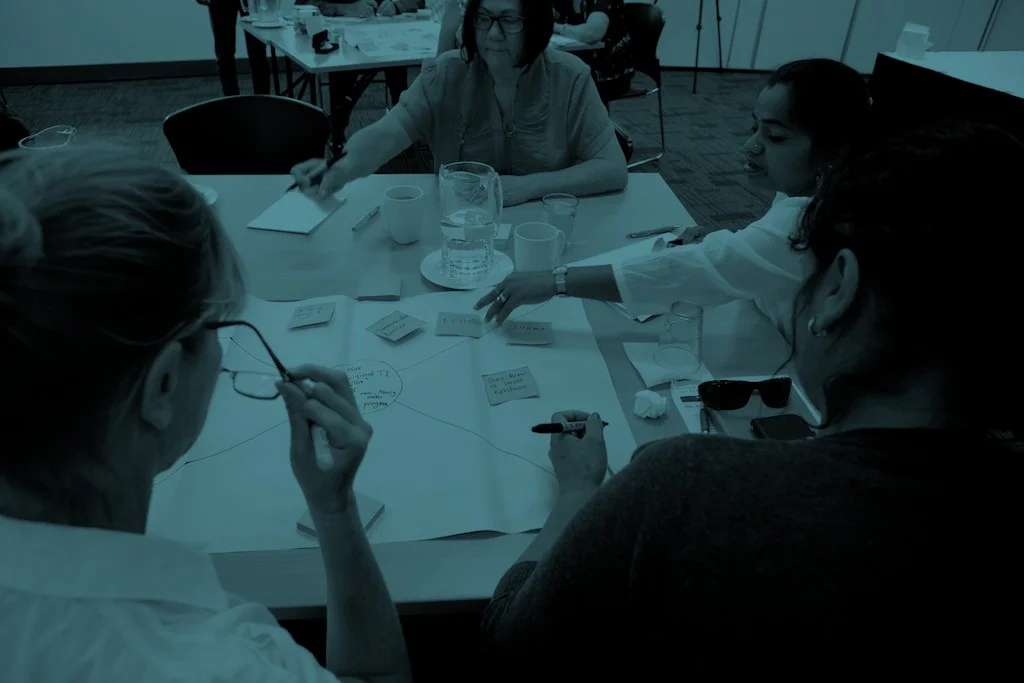
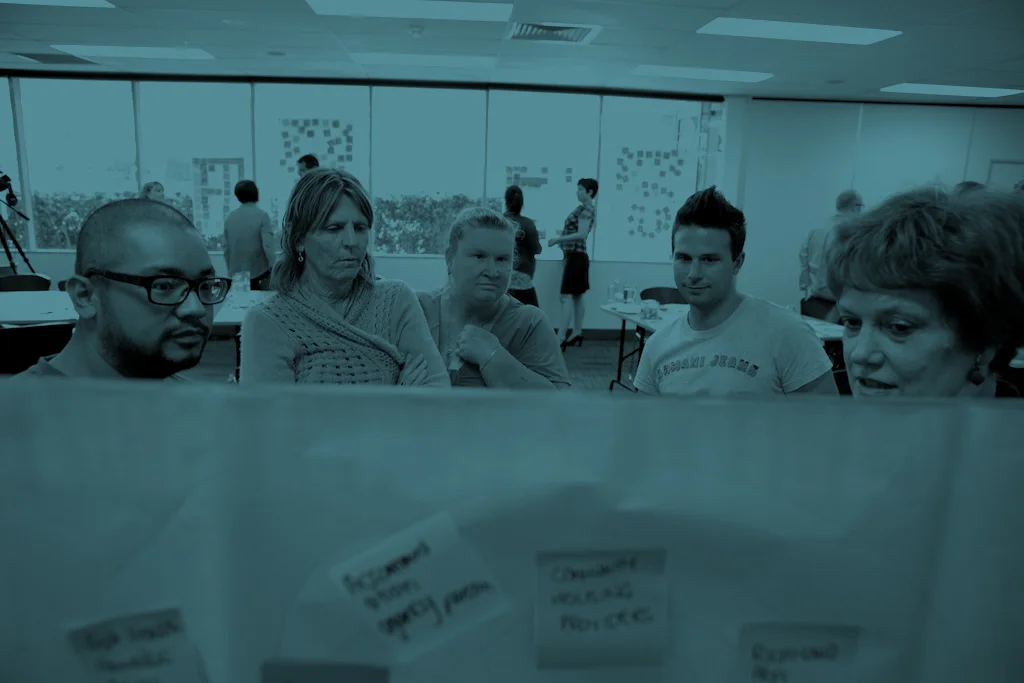
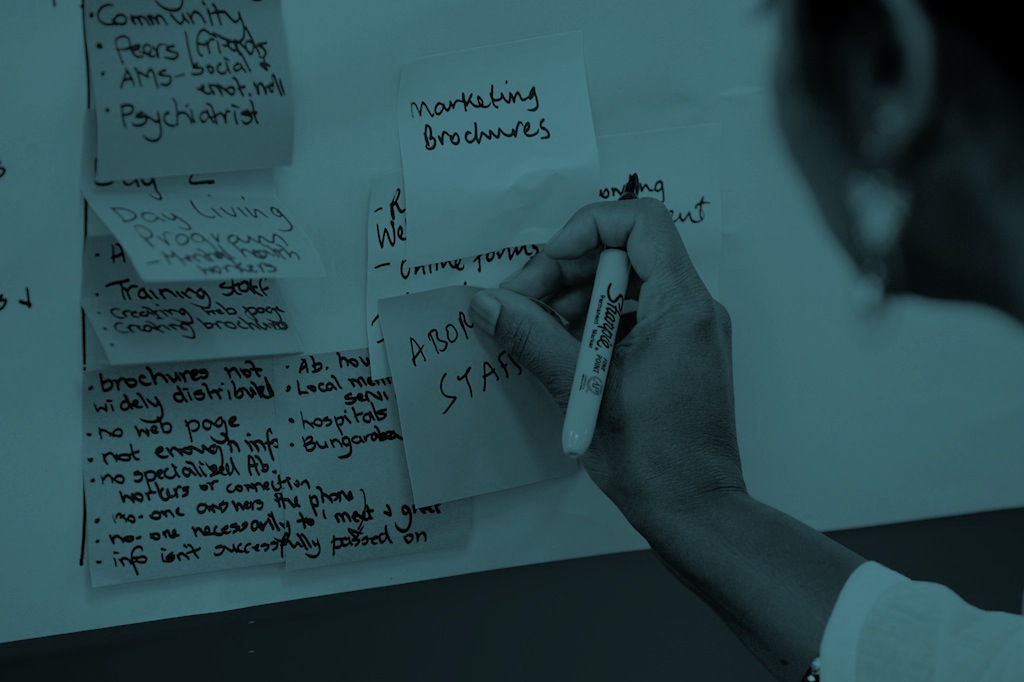
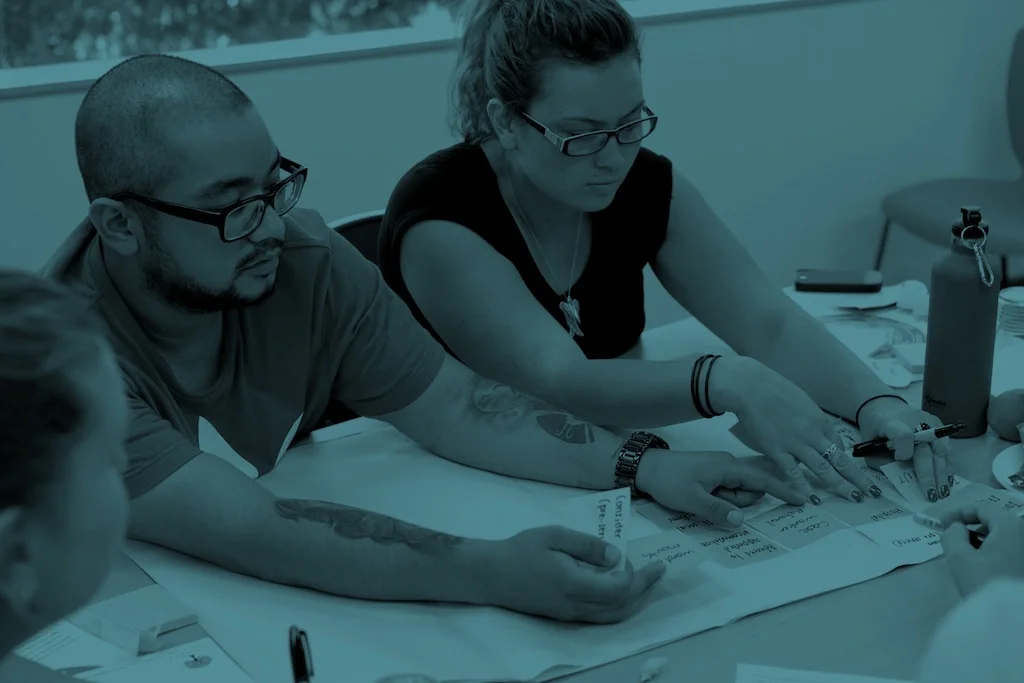
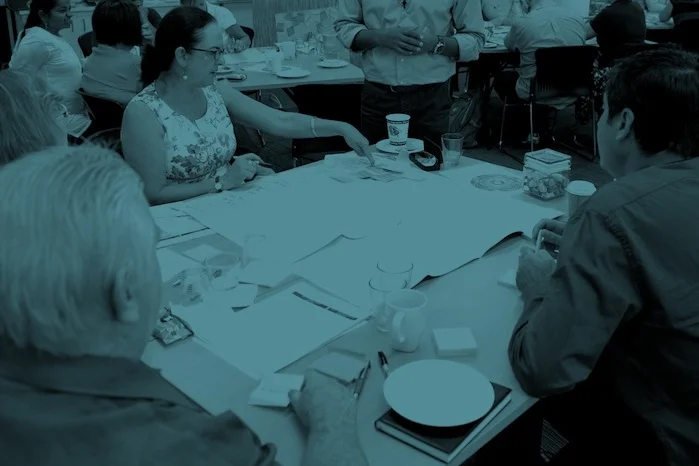
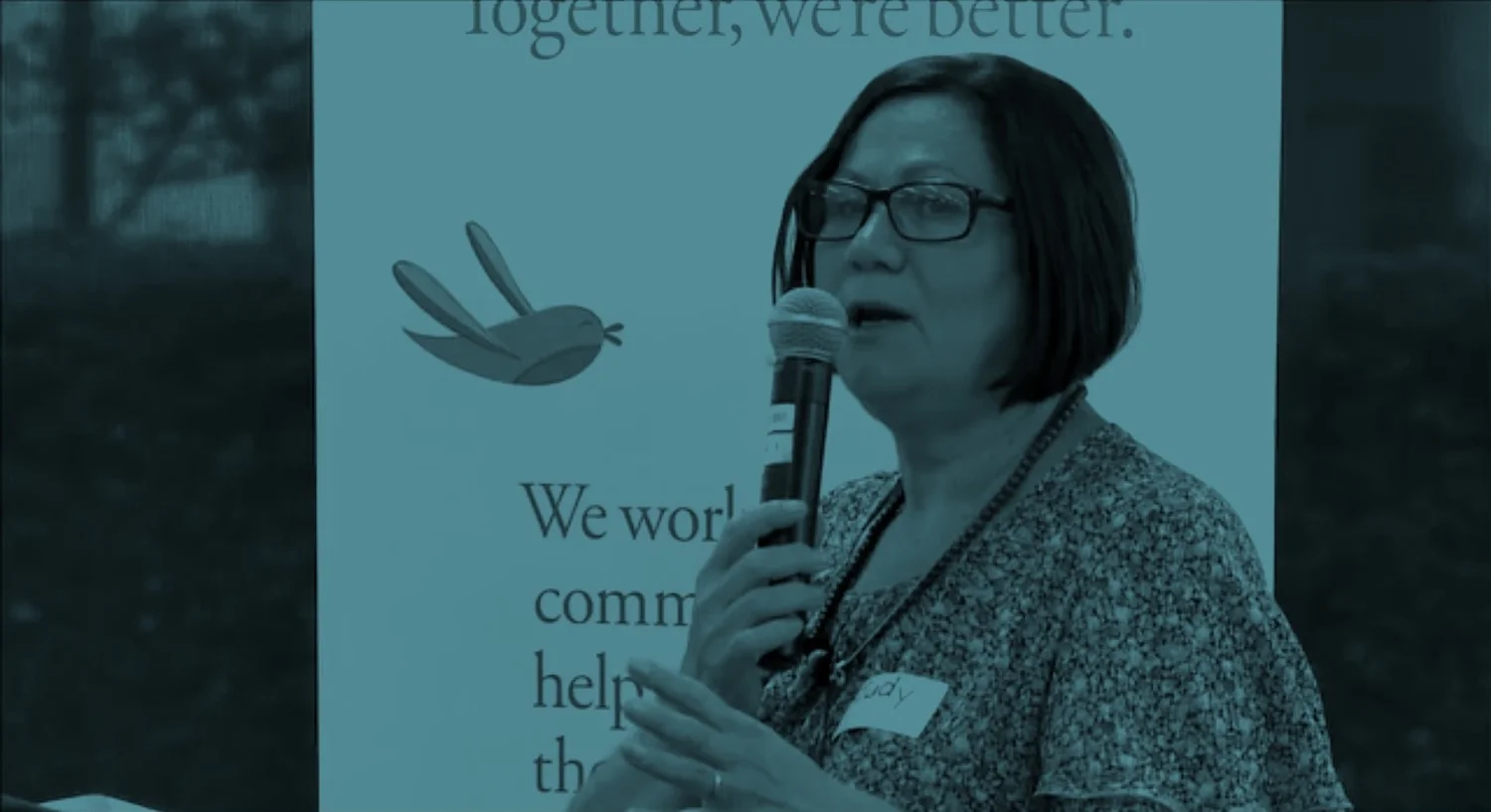

Module 1
Introduction to engaging Aboriginal and Torres Strait Islander communities
Module 1
Introduction to engaging Aboriginal and Torres Strait Islander communities
ABOUT THIS MODULE
Welcome to Flourish Australia’s introductory module on engaging Aboriginal and Torres Strait Islander Communities.
This module is an introduction and does not replace the need for more extensive training on working with Aboriginal and Torres Strait Islander Communities in mental health contexts. Furthermore the views expressed in this module are one staff member's reflection of their particular experience in engaging with ATSI communities.
Staff are therefore encouraged to do further research and professional development in this area to fully inform their practice at Flourish Australia.
This module has 5 sections along with associated activities, external links and resources:
- Section 1.1 Welcome to and Acknowledgement of Country
- Section 1.2 Understanding Aboriginal and Torres Strait Islander cultures
- Section 1.3 Connecting with community
- Section 1.4 Working holistically
- Section 1.5 Judy's reflections
ABOUT THE PRESENTER
JUDY CURRY
Judy Curry, a Flourish Australia staff member, presents this module. Judy is a strong Murriwarri women born in Brewarrina in far northwest NSW.
Judy was removed from her parents in Brewarrina at the age of 9 and grew up in care until the age of 15.
At the 48 Judy returned to study at TAFE and gained her Diploma in Community Services Welfare, Community Services Management and Aboriginal Leadership.
Throughout her career Judy has drawn from her own experience, networks and training to support organisations to connect with Aboriginal communities. This includes the NSW Drug Court and the Aboriginal Catholic Ministry. More recently Judy has supported Flourish Australia’s Aboriginal HASI initiative to connect and build capacity with Aboriginal and Torres Strait Islander communities and networks in Western Sydney.
Judy will be sharing her insights into what made a difference.

Section 1.1
Welcome to and Acknowledgement of Country
Section 1.1
Welcome to and Acknowledgement of Country
Judy introduces herself and the key distinction between Welcome to Country and Acknowledgement of Country.
RECONCILIATION AUSTRALIA FACT-SHEET
Reconciliation Australia's fact-sheet on Welcome to and Acknowledgement of Country outlines the important distinction between the two practices and the important role they both play for Aboriginal and Torres Strait Islander people.
SELF REFLECTION
After watching the video and reading the Reconciliation Australia fact sheet, outline what you think the difference between a “Welcome to Country” and “Acknowledgement of Country” and consider what significance the distinctions hold for Aboriginal or Torres Strait Islander people.

Section 1.2
Understanding Aboriginal and Torres Strait Islander cultures
Section 1.2
Understanding Aboriginal and Torres Strait Islander cultures
Aboriginal and Torres Strait Islander cultures have a long and dynamic history. Judy introduces some aspects of these dynamic cultures.
RECONCILIATION AUSTRALIA' SHARE OUR PRIDE
Reconciliation Australia’s Share Our Pride web resource on Aboriginal and Torres Strait Islander cultures provides a great overview of how dynamic and adaptive these cultures have been.
SELF REFLECTION
After viewing the video and the Share Our Pride website, consider what the word “culture” personally means to you and what issues might be significant when considering what culture might mean to Aboriginal or Torres Strait Islander people.

Section 1.3
Connecting with community
Section 1.3
Connecting with community
Judy introduces some key strategies to explore when trying to build relationships and connect with Aboriginal and Torres Strait Islander communities.
RECONCILIATION AUSTRALIA' SHARE OUR PRIDE
Reconciliation Australia’s Share Our Pride web resource, Respectful Relationships, reinforces some of Judy's strategies and provides four evidence-based strategies to build respectful relationships:
- Building relationships
- Showing respect
- Working partnerships
- Cultural awareness
SELF REFLECTION
After viewing the video and the Share Our Pride website, consider ways that you and your colleagues could connect with Aboriginal or Torres Strait Islander communities and what roles might elders play in that process? List as many ideas.

Section 1.4
Working holistically
Section 1.4
Working holistically
Historical events and culturally specific concepts of mental health and being unwell impact on how one can engage with Aboriginal and Torres Strait Islander people around mental health. Judy shares a short example on using a social and emotional wellbeing framework to engage people from Aboriginal and Torres Strait Islander communities.
RECONCILIATION AUSTRALIA' SHARE OUR PRIDE
Reconciliation Australia’s Share Our Pride web resource, Our Shared History, explores Australia's history since European settlement and the impacts of intergenerational trauma on Australia’s First People
SELF REFLECTION
After viewing the video and the Share Our Pride website, consider what impact historical events have on Aboriginal and Torres Strait Islander social and emotional wellbeing.

Section 1.5
Judy's reflections
Section 1.5
Judy's reflections
This module closes with Judy’s reflections on what has been most meaningful to her when working with Aboriginal and Torres Strait Islander people.
ADDITIONAL RESOURCES
Working Together Principles and Practice
Commonwealth of Australia (2010), Working Together: Aboriginal and Torres Strait Islander Mental Health and Wellbeing Principles and Practice Editors: Nola Purdie, Pat Dudgeon and Roz Walker
National Strategic Framework
Social Health Reference Group for National Aboriginal and Torres Strait Islander Health Council and National Mental Health Working Group. (2004). National Strategic Framework for Aboriginal and Torres Strait Islander Peoples’ Mental Health and Social and Emotional Well Being (2004–2009)
Social and Emotional Wellbeing Supplementary Paper
The Mental Health and Social and Emotional Wellbeing of Aboriginal and Torres Strait Islander Peoples, Families and Communities Supplementary Paper to A Contributing Life: the 2012 National Report Card on Mental Health and Suicide Prevention Prepared by Chris Holland, with Pat Dudgeon and Helen Milroy for the National Mental Health Commission, March 2013, updated May 2013
Presentation Slides
Judy Curry's presentation slides
SELF REFLECTION
Consider:
- What are the top three things that had most impact for you from this module?
- What are the top three things you will do when trying to make a difference for Aboriginal and Torres Strait Islander social and emotional wellbeing in your future practice?
